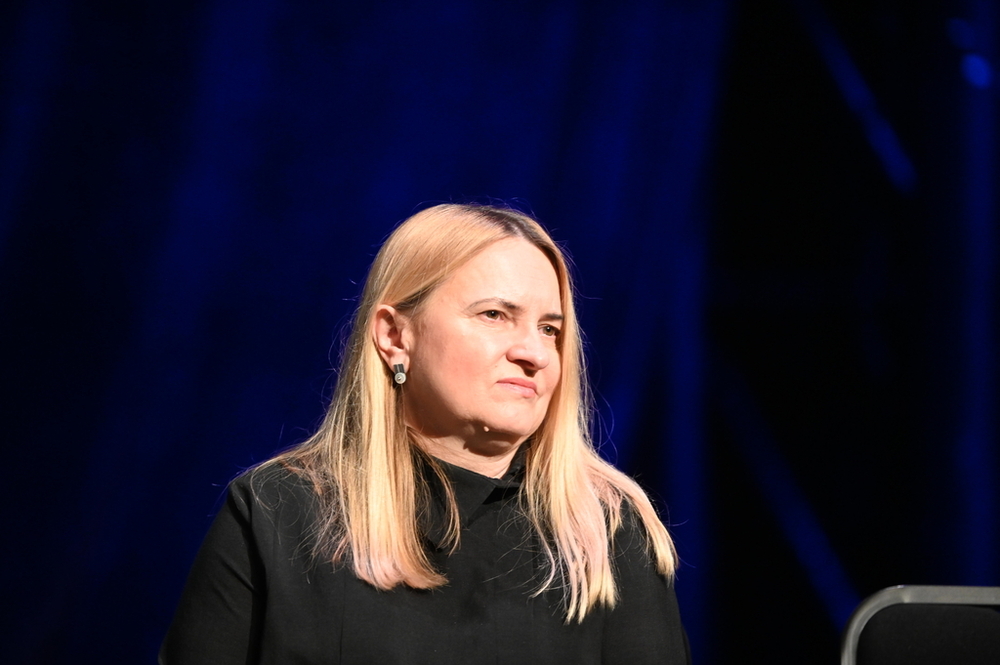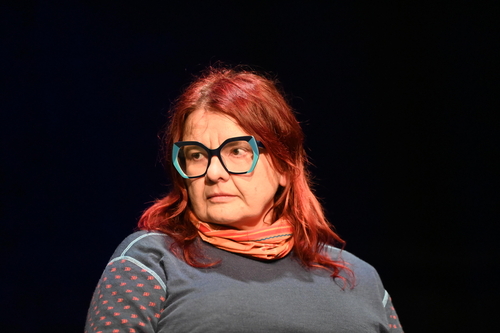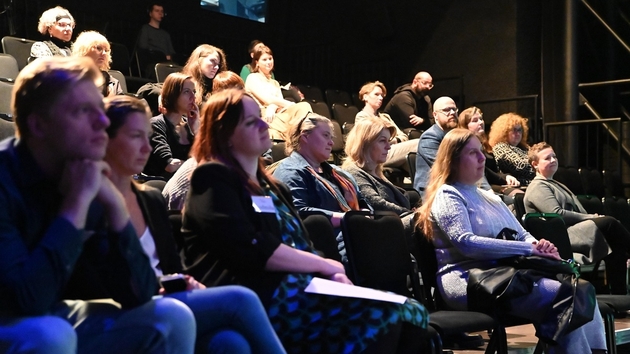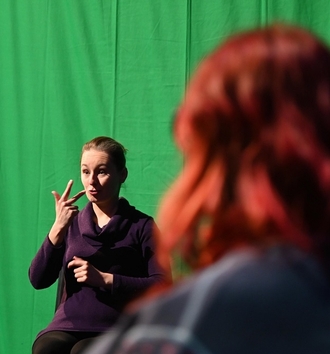Widzimy Inaczej Foundation was the main organiser of the conference. The meeting was intended to discuss the methods of operation and use of tools that enable or would enable visually impaired people and people with other disabilities to have access to cultural events and cultural assets.
A series of conferences is organised throughout Poland as part of the "Postępność" project. The expert panel of the Lodz edition was attended by six representatives of the local environment, including two experts from the University of Lodz:
- Dr Tamara Sass – Department of Childhood Pedagogy at the University of Lodz Faculty of Educational Sciences
- Agnieszka Kołodziejczak – a doctoral student at the University of Lodz Doctoral School of Humanities
and
- Dr Paulina Długosz – Director of the Education Department and accessibility coordinator at the Museum of the City of Łódź
- Magdalena Rutkowska – a student of sculpture and accessibility consultant at the the Strzemiński Academy of Fine Arts Łódź.
- Katarzyna Mądrzycka-Adamczyk – a long-time accessibility coordinator at the Muzeum Sztuki in Lodz, currently representing the Department of Consumer Policy of the Office of Electronic Communications
- Agnieszka Wilczek – project coordinator at the Marek Edelman Dialogue Center in Łódź.
Dr Tamara Sass talked, among other things, about the "Taxo. Sztuka dotyku" [Taxo. The Art of Touch] project and about the creative activities she undertakes as part of her scientific work:
The world is increasingly moving towards digital communication. We move some of our social relationships to the Internet, leaning more towards illusion than direct perception. This disturbs us in terms of perceptual harmony. If it is not easy for us to achieve certain interactions due to the ubiquitous use of the Internet, let alone for visually impaired people. This reflection led to the idea of creating tactile works so that partially sighted people could come to the exhibition and perceive art, only through a different channel.

Agnieszka Kołodziejczak shared her experiences, practices and reflections from the perspective of a scientist and a hearing-impaired person.

The topic of Agnieszka Kołodziejczak's doctoral dissertation is "Problem dostępności informacji w instytucjach publicznych oraz podmiotach ekonomii społecznej w obszarze kultury i sztuki dla osób słabo- oraz niesłyszących w Polsce. Rekomendacje i standardy" [The problem of information availability in public institutions and social economy units in the area of culture and art for people with hearing impairments in Poland. Recommendations and standards]. Its aim is to analyse and verify the methods currently used in the practice of socio-cultural life in Poland, supporting the availability and perception of the content of culture and art as well as the overall "cultural mediation". Evaluation will be carried out for effectiveness. The supervisor of the thesis is Dr hab. Aneta Pawłowska, Associate Professor at the University of Lodz.
Anna Felisiak, Head of the Social Affairs Centre for Students and Doctoral Students, University of Lodz Accessibility Coordinator, also spoke at the meeting:
I am impressed by the today's event. The exchange of ideas between experts and people who deal with accessibility and practice it is a great meeting space. I hope that in Lodz – coordinators and people dealing with accessibility, not only in public institutions – will be able to meet in those specific places where we work every day. Such a free exchange of experiences, in which we could participate today, is valuable and enriching.
The conference participants had the opportunity to talk about practical aspects of including people with disabilities in social life. Mock-ups, miniatures, replicas, tactile graphics and other tactile aids made using 3D printing were also presented as examples of the use of modern technologies in making cultural content available to blind and visually impaired people.
Source: Agata Dawidowicz, Communications and PR Centre, University of Lodz
Photos: Mariusz Romek (courtesy of the Łódź Provincial Office)


